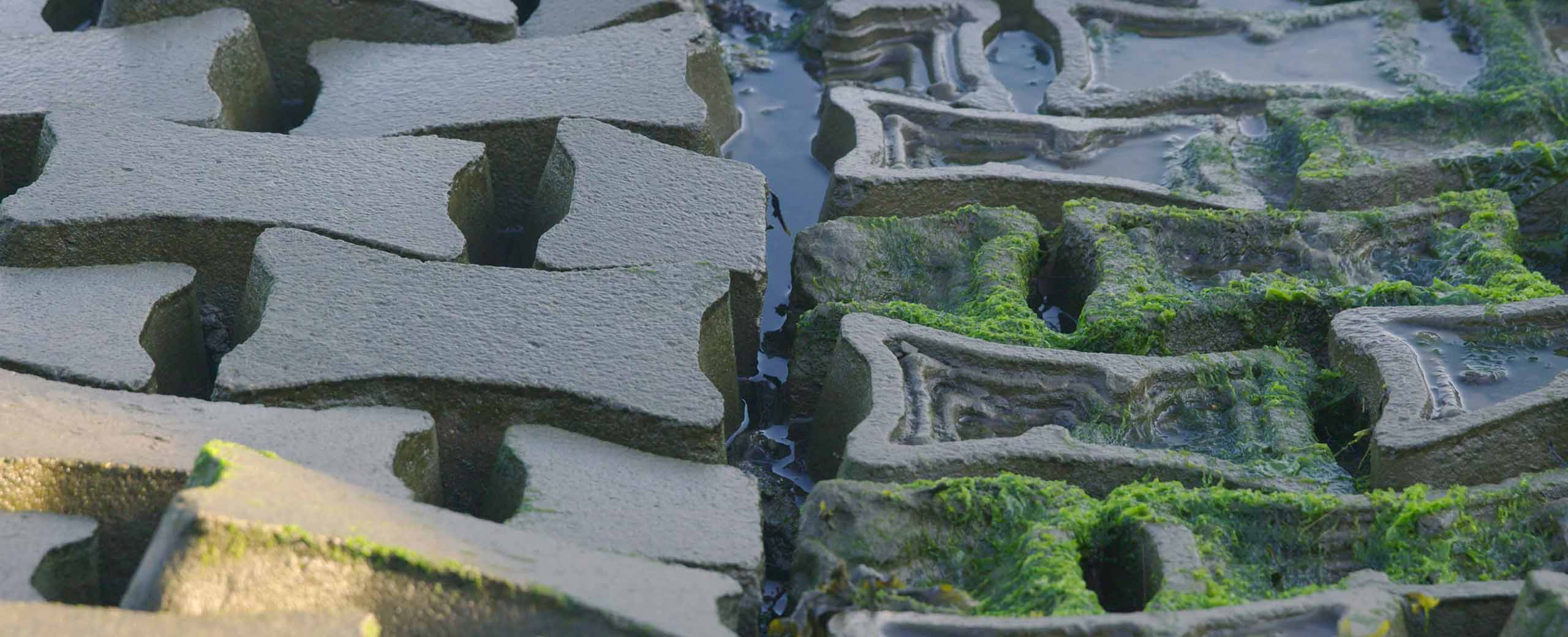A new peer-reviewed scientific paper proves the positive impact of ecologically engineered articulated concrete block mattresses (ACBM). The study was published by a team led by Marine Biologist Dr. Ido Sella PhD, ECOncrete Co-Founder and CEO, and Coastal Engineer Dr. Andrew Rella, Technical Business Development Director of ECOncrete, in cooperation with the NOVA University in Florida.
The study found that mattresses designed and manufactured by ECOncrete significantly elevate the ecological value of concrete-based coastal and marine infrastructure due to modifications of the concrete composition, surface texture and macro-design. The results have important implications for promoting a more sustainable and adaptive approach to coastal and marine development in an era of climate resilience building.
In the paper, the team present a structural-economical-biological analysis of ecologically engineered Articulated Concrete Block Mattresses (ACBM) to examine the compliance of new environmentally sensitive technologies with structural requirements and fiscal restraints, whilst providing ecosystem and habitat value. The innovative solution was developed as a joint research and development process between ECOncrete and Besser, the leading manufacturer of production systems and equipment for the concrete industry. The research was funded in part by the Israel-U.S. Binational Industrial R&D Foundation (BIRD).
Monitoring Ecological Concrete Block Mattresses
To evaluate the structural and biological performance of the ACBMs, a pilot project was deployed in April 2017 at Port Everglades, Florida, USA in conjunction with NOVA University and evaluated against controls of adjacent artificial structures and smooth-surface concrete blocks and monitored over a period of two years. A subsequent multi-year pilot project was later deployed in Neptune, New Jersey, USA in 2018 to offer validation in varying environmental conditions and whose results will be presented separately.
The ecological ACBMs were enhanced through the environmentally sensitive concrete solutions previously developed and validated by ECOncrete, including bio-enhancing concrete additives and biomimicry designs, scientifically proven to enhance the biological and ecological value of urban, coastal, and marine infrastructure.
For a Richer And More Diverse Ecosystem
Following two years of monitoring and analysis, the ACBMs were shown to have a wide range of environmental benefits – significantly increasing optimism amongst industry leaders looking to fight rising climate change concerns.
The surface features of ECOncrete facilitated development of an eco-system significantly different from those recruited on the control blocks, presenting higher values of species richness and diversity. Furthermore, there was a higher presence of calcifying organisms compared to the control blocks, which grew at a faster rate. In addition to habitat value, the chemical process of biocalcification (biogenic build-up) of calcitic skeletons utilises the CO2 molecules from the seawater to generate CaCO3 skeletons, essentially removing atmospheric CO2.
Get the full paper on the journal page or reach out to us for more information.


